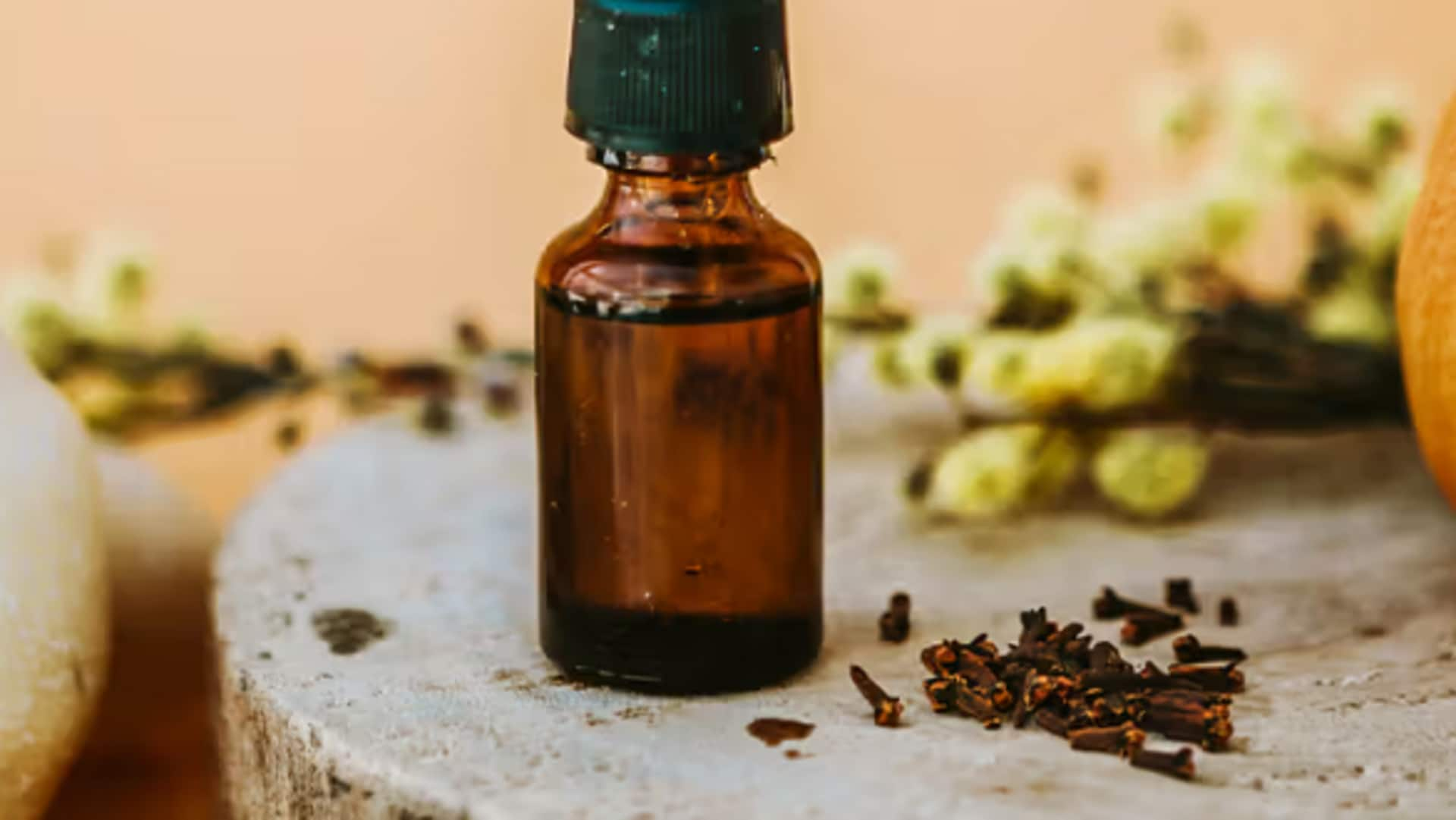
Unveiling clove oil's antifungal power
What's the story
Clove oil, extracted from the clove tree, has been a staple in traditional medicine for hundreds of years, thanks to its potent antifungal properties.
This article delves into the antifungal mechanism of clove oil, highlighting how eugenol interferes with the fungal cell membranes.
Plus, you'll get tips on how to use clove oil effectively and safely to combat fungal infections.
Composition
The science behind clove oil
The primary component of clove oil, eugenol, exhibits strong antifungal properties.
Research indicates that eugenol effectively suppresses the growth of various fungi, including Candida (which causes yeast infections) and Trichophyton (which leads to athlete's foot).
It achieves this by damaging the cell membrane of the fungi, preventing them from proliferating.
Usage tips
Practical applications of clove oil
To take advantage of clove oil's antifungal properties, you can either apply it topically or use it in aromatherapy.
For topical use, always dilute clove oil with a carrier oil like coconut or olive oil at a ratio of 1:4 to prevent skin irritation.
For aromatherapy, simply add a few drops to a diffuser or inhale directly from the bottle.
Precautions
Safety considerations when using clove oil
Although clove oil is natural and powerful, remember it's also potent and should be used wisely.
Always do a patch test before applying it to more extensive areas of your body to ensure you won't have an allergic reaction.
Pregnant women and those with sensitive skin should seek advice from a healthcare provider before using clove oil.
Daily use
Incorporating clove oil into your routine
Adding clove oil to your daily routine can help you avoid fungal infections before they even start.
Adding two to three drops into your foot soak can protect you from athlete's foot, especially in communal shower areas.
Mixing it with your shampoo can help you fight off dandruff caused by fungal growth on the scalp.